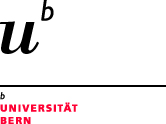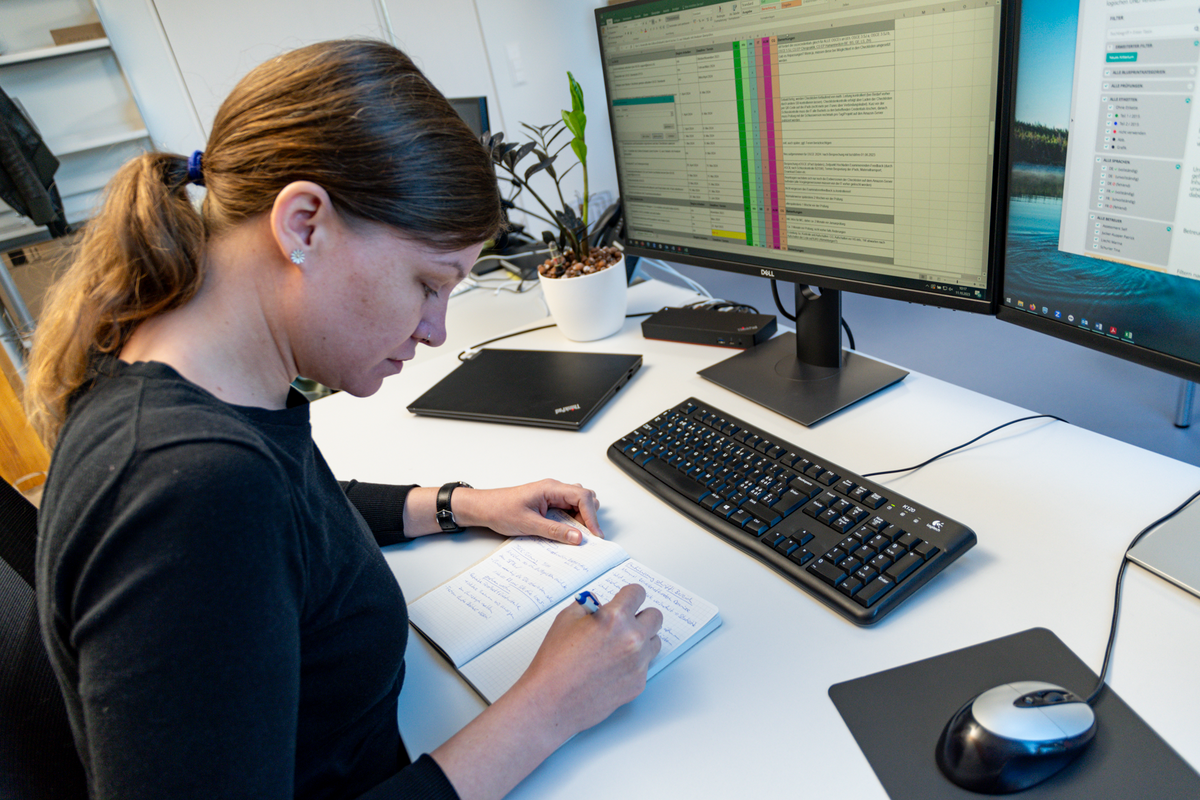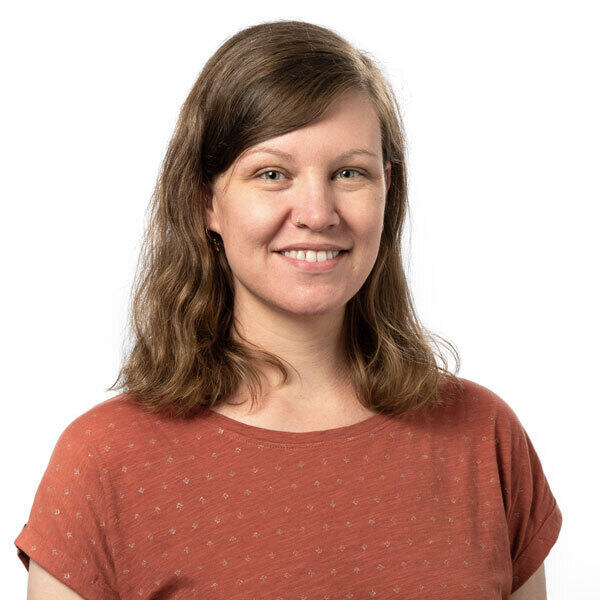Whoever embarks on a clinical career has - despite all the options - a clear path ahead of them. If you deviate from it, there are suddenly many new possibilities.
After studying medicine in Basel, I wrote my dissertation on a blood marker after cardiac arrest in Prof. Sabina Hunziker's research group. Afterwards I continued my clinical education in internal medicine and psychiatry. There I had to realise that the hospital is not the optimal environment for me and that I can better use my skills elsewhere.
At the beginning of my job search, I only had one clear idea: I wanted to work at a university. Moreover, although I wanted to leave the clinical field, it was very important to me to remain connected to medicine. Through an acquaintance, I learned about her position at the Institute for Medical Education (IML) and its important place in the education of medical students in Switzerland. What I liked about her description was the idea of being involved in practical examinations, so-called OSCEs (Objective Structured Clinical Examinations), the creative side of developing examination cases, the flexibility in the organization of one’s workday and the cooperation between different professional groups. I have now been employed as a research assistant in the Department of Assessment and Evaluation (AAE) since June 2023.
The transition from my life as a resident to my new function as a research assistant was a further challenge. Instead of patients, I now take care of examination cases. Whereas the telephone used to be my main mode of communication, I mostly email these days. Previously, my tasks consisted of studying patient files, going on rounds, consulting with specialists. Nowadays, case orders (How can the management of a patient suspected of having pneumonia be tested in practice?), plausibility checks (Is the examination case consistent?), simulated participant (Can this case be played out realistically?), and examination observations (Does the case test what it is supposed to test?) characterise my tasks. I have always enjoyed writing and editing texts and I am happy to be able to use this skill every day now. The OSCEs, which are the culmination of all our efforts, present a welcome change to the more solitary duties. A highlight of my experience so far has been the Swiss Federal Licensing Exam in Clinical Skills, which was held for the first time in three languages (German, French, Italian) this year. It has been great fun being involved in an examination that takes several years to prepare, involves countless different specialists from almost all parts of the country, and allowed me to put my clinical experience to use. This huge undertaking is one of the good reasons for me to be involved in the IML. Other advantages are the cooperation with different faculties, the multilingualism and the proximity to national decision-makers in medical education.
At the end of the month, I am attending my first training in OSCE skills, as I am responsible for the content of the third-year OSCE in addition to helping with the Federal Licensing Exam. The OSCE is not specific to Swiss universities, which gives me the opportunity to exchange ideas internationally. I am very curious to learn how OSCEs are conducted in other countries and which insights from seasoned experts can possibly be implemented at the IML.



